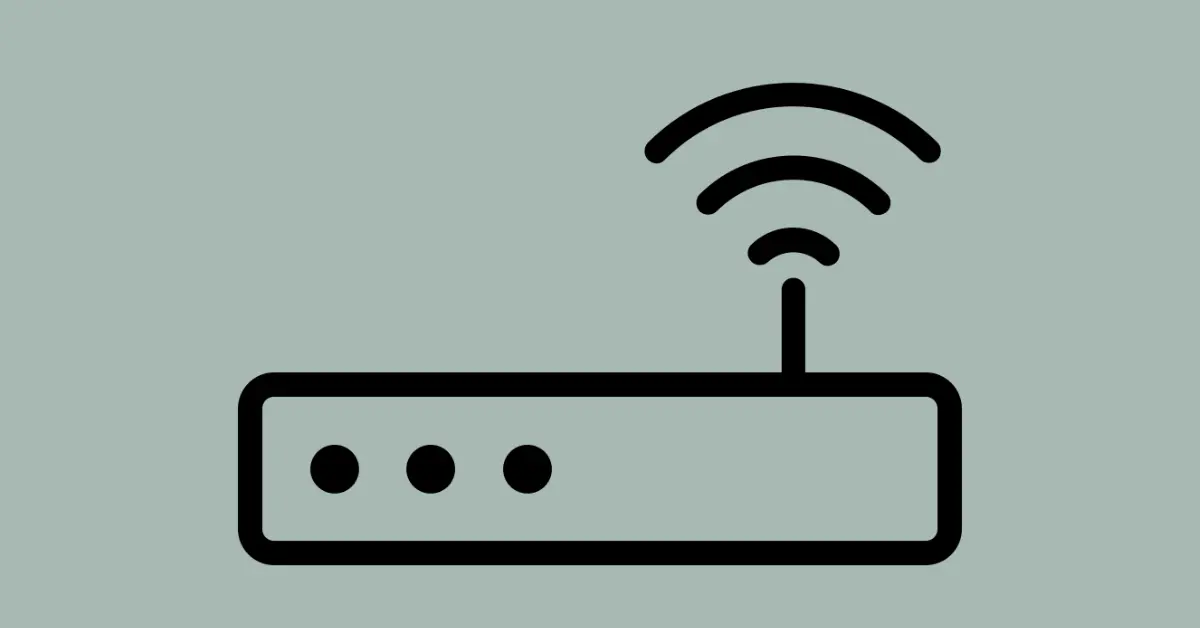You can prepare for traveling to a dangerous country by planning your public transportation, packing the right items, securing your online personal information, and more. Keep reading and find additional tips.
I’ve traveled to over 4 countries and have learned a lot about preparing myself for an unknown journey. I want to share my experience with you to help you prepare.
8 Ways To Prepare Yourself for Traveling to a Dangerous Country
The following sections will cover tips you want to consider before traveling to a different country. They’ll help digital nomads, travelers, international students, and anyone visiting other countries.
None of these tips will 100% protect you. But they can help reduce risks while not interfering with your travel experience.
1. Mitigate Your Risks
Explore the perspectives of expatriates and other travelers who visited your destination. Figure out what problems they’ve encountered and their solutions to overcome said issues.
Also, get the local’s perspective. See how they protect themselves from crime, unsanitary conditions, and whatever else.
For instance, you can minimize damage from theft by insuring your items. Or get creative with storing your items. You could store jewelry in an empty sunscreen bottle in your hotel room.
A thief would be less likely to steal a bottle of sunscreen than a gold ring on your bedside table.
2. Remain Alert About Your Surroundings
Pay attention to your surroundings. Keep an eye out for people staring at you and people walking very close to you.
If you notice somebody following you on the street, move toward a somewhat populated area. Ensure the populated place doesn’t have too many people.
Someone could do something to you in the middle of a crowd without anyone knowing. Like stealing your bag or wallet. In this instance, the best way to protect yourself is to have enough people around you to notice if something happens.
If you’re in a crowd, keep your hands in your pockets around your wallet or cell phone. Otherwise, someone could pickpocket you without you knowing.
Never assume that anyone can’t pickpocket you. Because some people are very crafty with their hands.
Moreover, you will want to ensure you aren’t talking on the phone while walking. Because you will find yourself distracted by your conversation. This means that you won’t be able to detect any potential threats or anyone who will steal anything from you.
3. Secure Your Digital Information
Protect your online personal information from hackers and thieves who steal your devices.
Download a password manager and use it to store your passwords. It prevents you from writing your passwords in a notebook someone could steal or using an easy-to-guess password.
I recommend Bitwarden. It’s open source and free. It also hasn’t been hacked. Unlike LastPass [1].
Once you create a password manager account, reset all your account passwords. Aim for anything above 12 characters and has a mix of numbers, lower-and-upper-case letters, and other characters.
Now enable 2-factor authentication (2FA) on all your online accounts (if possible). If someone guesses your account passwords, 2FA will provide another barrier to entering your online accounts.
Avoid using SMS and email 2FA if possible. They’re the least secure methods available. But if you don’t have other known methods, use these. Better than no 2-factor authentication.
Time-based one-time passwords (TOTP) and U2F security keys offer the best account security. The former requires a mobile app (I recommend Aegis) and produces a random code you’ll input when logging into an account.
You’ll need to buy a hardware security key for the latter method. I use and recommend YubiKey. But you can’t use this 2FA method on many accounts.
If you’re using public Wi-Fi, DO NOT log into bank accounts or any other website with confidential personal information.
Because hackers could potentially eavesdrop on your network and snatch your information.
A virtual private network (VPN) can hide your IP address and help prevent hackers from intercepting your information. And they can help you access websites banned in your destination.
Check the local laws. Ensure VPNs aren’t banned. I don’t want to encourage breaking the law.
And if you’re looking for a good VPN, I use and recommend Surfshark VPN. It’s affordable and effective. So long as you subscribe for over a year.
Laptop users will want to encrypt their hard drives. If someone steals your laptop, they’d have to enter a password to access your files. Otherwise, it’s near impossible for someone to see your files.
Mac users must click on the Apple icon, navigate to System Preferences, then click the ‘FileVault’ tab. Now click the ‘Turn on FileVault’ button.
You’ll need to select how you want to lock your disk. Set a password and recovery key. Apple has a more thorough encryption guide on their website.
Windows users will want to navigate through these settings to find disk encryption:
Settings > Device Security > Data Encryption
Toggle the Device Encryption button on.

If you have BitLocker (device encryption software), navigate to the Data Encryption page again and look for this setting:

Click that card, turn on BitLocker, and follow the on-screen instructions.
Windows makes it simple to enable device encryption. If you’re still stuck, here are instructions.
Before traveling, and while you’re abroad, ensure you back up your files. If you lose your device, you won’t lose your files.
4. Stay in Contact With People You Know
Set a specific time of the week to contact a person back home and keep them up-to-date. Whether it’s just chatting or telling them what’s been going on with your travels
This will keep your family or friends in the loop. And let them know whether they should contact the authorities to search for you. In case you go missing.
Here’s an example. Video chat with your parents over Zoom every Sunday between 11:00 am and 1:00 pm in your time zone.
While setting up a time to contact someone you know, you will want to provide them with contact information. Such as your home country’s embassy or consulate’s phone number.
Don’t forget to have a backup way to reach you. In case, for some reason, your primary contact method goes offline. Whether for maintenance, a hack happened to the website, or the company shut down its services out of nowhere.
5. Enroll With Your Embassy and Stay Informed
Consider enrolling with your home country’s Embassy in the country that you’re staying in. Though, you’re giving your government your travel information, it helps them reach you in case of an emergency.
Or to provide updates on dire situations in the country you’re visiting.
For instance, they may send you an update notifying you of an incoming natural disaster. They’ll also likely provide resources to help you prepare yourself.
If you are from the U.S., sign up for the Smart Traveler Enrollment Program (STEP) program. They will contact you about important information on what’s going on within your country.
6. Maintain a Low Profile
Some ways that you can maintain a low profile while abroad include:
- Avoid certain events: these include protests and riots.
- Blend in with the locals: don’t wear items that’ll make you stand out
- Always travel in a group at night: or use a taxi; don’t expose yourself to muggers
- Avoid locations that are targeted toward foreigners: for instance, avoid American-themed bars or clubs
- Reconsider getting drunk in public: otherwise, you’ll bring a lot of attention to yourself
- Don’t break the law: staying in international jails or prisons will ruin your trip
- Avoid confrontation: don’t end your trip by ending up on the news
If you’re a drinker, you’ll want to visit bars. And you’ll likely want to stay around people from your home country. These places may have locals who want to take advantage of you.
Whether through a scam or an opportunity to steal from you.
Because if someone wanted to find a place that could make them a lot of money, why not go for intoxicated people who don’t know much about the country?
I’m presenting this information to make you aware of the potential danger. You can mitigate these risks by not getting blackout drunk and by having a trustworthy local to keep you out of trouble.
7. Plan Your Transportation
Research the public transportation available in the country you’re traveling to. That way, you will better understand the pricing, what types of public transport you should avoid, and the safest way to get around your country.
When going to the Philippines, I was dumb and failed to follow this tip. A couple taxis I took charged WAY more than I should have paid. Because I didn’t do research.
Don’t make the same mistake.
One way to research public transportation is to look into expat forms of the country you’re going to. Also, reach out to locals and ask them about their opinions and what they do
Or consider contacting your government representatives in the country you’re visiting for more information.
8. Pack Items To Protect Yourself
Pack these items to help protect yourself while abroad:
| Item | Reason to Pack |
|---|---|
| AirTag or equivalent | Track your belongings |
| Copies of travel documents | In case you lose the originals |
| Door wedge | Prevent people from busting through your hotel door |
| Magnetic door alarm | Alerts you if someone breaks into your room |
| Food poisoning medication | Probiotics, antibiotics, & fever medication |
| Electrolytes | Helps prevent dehydration |
| RFID Wallet | Prevents people from copying your bank and ID cards |
| Taser | For self defense; ensure they’re legal |
| Money belt | To hide your cash |
| Decoy wallet & phone | Disposable wallet & phone to give to muggers |
| Sunscreen | The sun is dangerous too |
| High-top boots | Protect your ankles from snakes |
| Hand sanitizer | Useful in case you can’t find sinks with soap |
| Epinephrine pen | Prevent yourself from falling to allergic reactions |
| Travel insurance | Get reimbursement from your luggage |
| Travel Disinfectant Wipes | Clean surfaces you’re going to eat off of |
I recommend all the above items for most scenarios. However, you’ll need to pack your bags tailored based on where you’re traveling.
For instance, if you’re traveling somewhere that’s hot, pack lightweight clothing. Cold destinations will demand heavy clothing. Don’t succumb to the weather.
Mother nature could hurt you just as easily as a criminal.
And for the love of God. Don’t pack your items in a luxury backpack or rolling suitcase. So don’t pack your belongings in a Gucci rolling suitcase.
Otherwise, you’re telling people, “Hey, I have a lot of money and stuff to steal.”
What happens if someone does steal your stuff? Let’s find out in the next section.
How To Deal With an Emergency Abroad
Americans can contact the U.S. Department of State by calling either of these numbers [2]:
- +1 202-501-4444: if you’re outside the U.S. and Canada
- 888-407-4747: if you’re inside Canada or the States
The U.S. Department of State can’t help American citizens much other than by providing information. In most situations. The U.S. government will not help you evacuate a country [3]. Nor will they pay for your evacuation.
You can also contact your nearest embassy. Americans abroad can visit this site to find a list of every USA diplomatic mission, consulate, embassy, or consular service.
They could also help with providing information, passport services, or getting you in touch with people who could help in your situation.
If you’re using travel insurance, contact your insurance provider immediately. The way you deal with claims will likely differ by provider. So I can’t provide general recommendations.
Common Issues That You May Encounter in a Dangerous Country
The following sections will cover issues that you’ll need to be aware of when traveling to a different country.
1. Dangerous Roads
The place that you’re visiting may not have developed roads. They may also have more traffic or dangerous drivers than you’re used to.
Or, the laws in the country may not support pedestrians’ well-being.
Practice being aware of your surroundings. Whether you’re walking or renting a vehicle. If you’re driving, make sure that you’re a defensive driver.
Pedestrians crossing a road will always want to check every direction before crossing. You never know when someone will run a red light.
2. Petty Theft
This type of theft includes scams, pickpocketing, or someone stealing your belongings that you accidentally left somewhere. This is likely the most common type of crime that you’ll run into in a dangerous country.
3. Food Quality
You may find a country that doesn’t have strict food sanitation rules, therefore you may find yourself having food poisoning the following night after eating some sketchy food.
4. Cybercrime
No matter where you are in the world, there’s a potential to run into hackers. You’ll have people resorting to using whatever means possible to obtain your personal information. So that they could sell it and places like the dark web.






